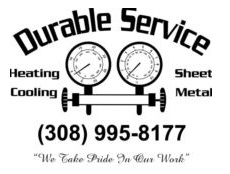
Did you perform a double take when you viewed your last energy bill? Even though high energy bills can be the end result of intense weather events, repeatedly high bills can quickly signify an inefficient HVAC system or your home is wasting energy through other means, like drafty windows or insufficient insulation.
An easy way to figure out whether your home is consuming too much energy is by getting a home service specialist to perform a home energy audit, also referred to as a home energy assessment. Keep reading to find out more about home energy audits, including what they are and their benefits.
What Is a Home Energy Audit?
An energy audit is a thorough inspection of how much energy your home uses and whether – and where – your home could be losing or wasting energy. An inspector will take a look at older energy bills during an energy audit to determine where energy is being wasted and how much.
The overall goal of an energy audit is to help homeowners save money on their energy bills by recommending energy-efficient updates, which can include exchanging your current HVAC system, putting in new insulation, sealing up leaks, or replacing loose windows.
Over the course of the energy assessment, the auditor carries out an inspection of the outside and inside of your home. The auditor will perform a blower door test on doorways, windows and fireplaces to figure out if there are air leaks in your home. They’ll also evaluate your home’s HVAC system, including the ductwork, the water heater, and the insulation in your attic. Exhaustive assessments may also include reviewing your current lighting system.
Benefits of a Home Energy Audit
It can be tough for the ordinary homeowner to know for sure how efficient their home is compared to other similar homes in their neighborhood. However, many energy companies often supply information about where your home is ranked in comparison to similar homes and whether it’s more efficient, about average, or inefficient in contrast with your neighbors’ homes. This can be a good starting point to figure out if you need an energy audit performed.
Some of the benefits of a home energy audit include:
Understanding How Efficient Your Home Is
It’s worthwhile to learn more about how efficient your home is and where you’re using the most energy. For example, if your ducts are damaged, it could lead to a large increase in your energy bills and additional wear and tear on your HVAC system because it has to work longer to completely heat or cool your home.
Making Energy-Efficient Improvements
An energy audit should reveal where you need to make energy-efficient improvements to save on energy and lower utility bills. This might include replacing old weatherstripping or getting a new energy-efficient furnace.
Enhancing Health and Safety
Permitting air to seep into your home via doors and windows, or due to a lack of insulation can cause unwanted moisture to build up, which may negatively impact your home’s humidity levels or lead to mold. This can lead to health problems, particularly for people suffering from asthma or allergies.
Increasing Your Home’s Retail Value
Energy-efficient homes are desired by homebuyers. You can sell your home sooner or for more money by telling prospective buyers that it’s energy efficient.
How to Do an Energy Audit of Your Home
Although handling an energy audit by yourself will not be as thorough as calling a professional, it’ll offer a general idea of how energy efficient your home is. If you don’t discover any issues during the DIY test, then you probably don’t need to bring in a professional. Use this step-by-step checklist:
- Inspect your HVAC system. Damaged ducts can lose nearly 20% of conditioned air, contributing to steeper energy bills and excess wear and tear on HVAC equipment. If you notice leaks, use duct tape to eliminate them. If your HVAC equipment is old and wearing down, upgrading to a new system can save you a significant amount on your energy bills. In some cases, it might be better to contact a reputable HVAC company to inspect your system.
- Check for air leaks. Air leaks on average can raise your energy bills by 10 to 20%. Inside, look for air leaks in areas where you can find a draft, such as along the edge of flooring and close to baseboards and electrical outlets. Outside, you can look for air leaks in the home’s foundation, siding and mortar. Plug, caulk or seal any air leaks to save money.
- Inspect insulation. If your home is older, it could mean your insulation is too. If you can see the joists, you likely need more insulation.
- Check ventilation. Ensure that all of your kitchen and bathroom exhaust fans are working properly, and inspect for evidence of rot or moisture.
Contact Durable Service for a Professional Energy Audit
If you are interested in professional help finding out how energy efficient your heating and cooling equipment is, contact the HVAC pros at Durable Service today. We’ve proudly served the residents of Holdrege with quality home services for many years. Contact us today to set up an appointment.

